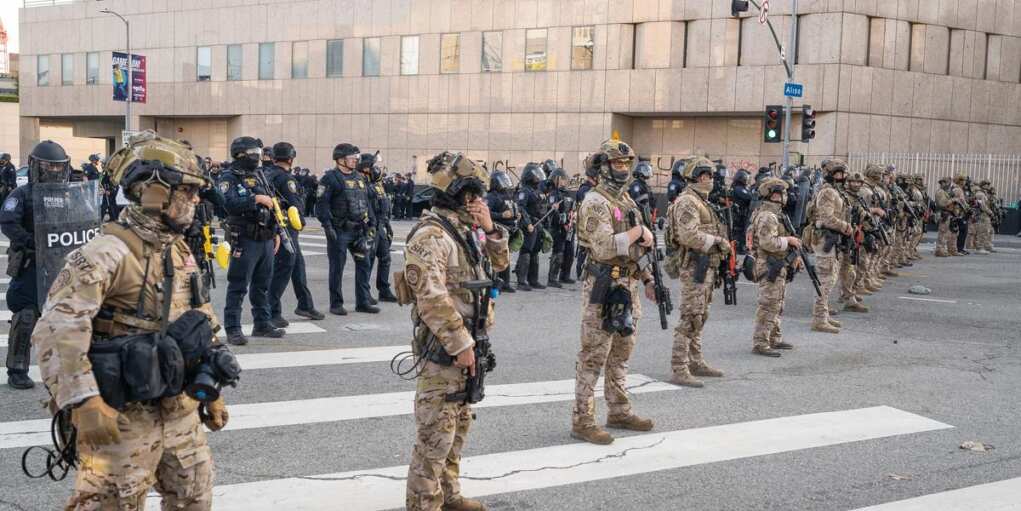Chicago Mayor Threatens ‘Uprising’ if Trump Sends Troops

Chicago Mayor Brandon Johnson declared that the city would resist President Donald Trump if federal troops are deployed, calling it a fight against “authoritarianism” and “tyranny.” His comments came during an MSNBC interview where he reacted to reports that Trump might consider using active-duty troops in Chicago, similar to previous actions taken in Los Angeles.
Johnson insisted Chicago does not need “a military occupied state,” dismissing the role of federal troops and claiming they have “no police power.” He argued that Trump’s deployment of resources in other cities, including Washington, D.C., has accomplished little, pointing to the arrests of only a handful of individuals despite what he described as massive spending.
“The people of this city are accustomed to rising up against tyranny,” Johnson said. “If that’s necessary, I believe that the people of Chicago will stand firm alongside me as I work every single day to protect the people of this city.”
The mayor framed his opposition as part of a larger resistance to Trump’s federal interventions, aligning his stance with California leaders who fought similar measures. Johnson claimed Trump’s actions have only served to unify Democrats across different states, pointing to what he described as a growing backlash against federal involvement in local governance.
Trump, meanwhile, has defended his willingness to send in federal forces to combat surging crime. In Washington, D.C., he recently invoked federal authority over the Metropolitan Police Department, a move he said brought violent crime down by more than 20 percent in just one week. He has suggested similar results could be achieved in other cities plagued by lawlessness.
Chicago has long struggled with violent crime, ranking near the top nationally in homicides and shootings. Critics argue that local leadership has failed to provide safety for residents and that the federal government has an obligation to intervene when cities are unable or unwilling to control violence. Johnson, however, rejected that framing, insisting the city must retain control over its own policing.
The clash underscores the growing confrontation between Trump’s law-and-order agenda and progressive leaders who view federal intervention as a threat to local authority. By promising an “uprising,” Johnson signaled that the fight over crime control in Chicago may soon escalate into a broader political showdown over federal versus local power.
As the administration continues expanding its crackdown on violent cities, the standoff in Chicago could become a key test case of how far Trump is willing to go — and how much pushback blue-state leaders are willing to mount.

